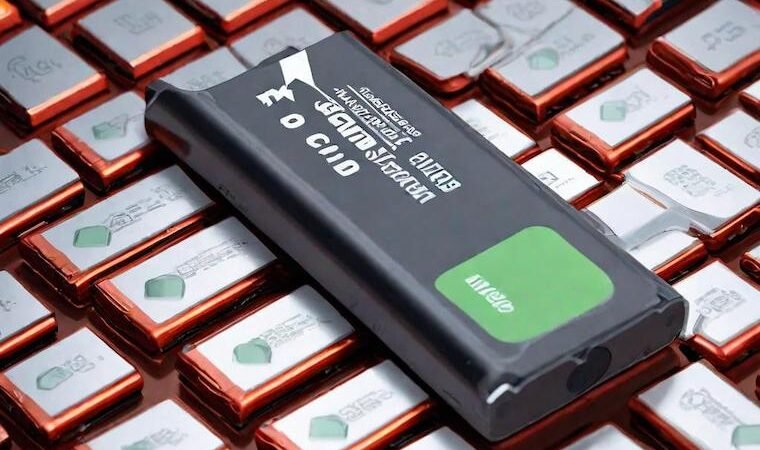Battery safety is must when it comes to the use of electronic devices that rely on batteries for power. Whether it’s the ubiquitous alkaline batteries found in remote controls or the high-energy lithium-ion batteries powering smartphones and laptops, understanding how to handle batteries safely is crucial.
Batteries are an integral part of our daily lives, powering a wide range of devices we use for communication, entertainment, and work. However, if not handled properly, batteries can pose serious safety risks. Short circuits, overheating, and leakage are some of the potential hazards associated with batteries.
In this article, we’ll discuss the importance of battery safety and provide tips on how to prevent short circuits, avoid overheating, and dispose of batteries safely. Whether you’re using batteries in household gadgets or high-tech devices, following these guidelines will help ensure your safety and the longevity of your batteries.
Understand Battery Safety
Batteries, while indispensable in powering our electronic devices, come with their own set of potential hazards that users need to be aware of. Here, we’ll delve into some of the common risks associated with batteries and emphasize the importance of adhering to safety guidelines to mitigate these risks and prolong the lifespan of batteries.
Potential Hazards Associated with Batteries:
- Short Circuits: A short circuit occurs when the positive and negative terminals of a battery are connected directly, bypassing the device they’re intended to power. This can lead to rapid discharge of the battery’s energy, generating heat and potentially causing the battery to leak, vent, or even explode. Short circuits can occur due to damaged battery casings, metal objects coming into contact with battery terminals, or using batteries with incompatible devices.
- Overheating: Overheating is another common hazard associated with batteries, particularly lithium-ion batteries used in smartphones, laptops, and other portable devices. Overcharging, exposure to high temperatures, or manufacturing defects can cause lithium-ion batteries to overheat. This can lead to thermal runaway, a self-perpetuating reaction where the battery temperature continues to rise uncontrollably, potentially resulting in fire or explosion.
- Leakage: Battery leakage occurs when the chemicals inside a battery react with moisture or air, causing corrosive electrolytes to leak out of the battery. This can damage the device the battery is powering and pose a health hazard if the leaked electrolytes come into contact with skin or eyes. Leakage is often caused by using expired or damaged batteries or leaving batteries in devices for extended periods without use.
Importance of Following Safety Guidelines:
Following safety guidelines when handling batteries is crucial for several reasons:
- Prevention of Accidents: By understanding and adhering to safety guidelines, users can minimize the risk of accidents such as short circuits, overheating, and leakage, which can cause property damage, injuries, or even fatalities.
- Protection of Devices: Proper handling and storage of batteries can help protect the devices they power from damage caused by short circuits, overheating, or leakage. This ensures the longevity and optimal performance of electronic devices.
- Longevity of Batteries: By handling batteries safely and using them according to manufacturer recommendations, users can prolong the lifespan of batteries, reducing the frequency of replacements and minimizing environmental impact through reduced waste.
Preventing Short Circuits
Short circuits are a common concern when it comes to battery safety. They occur when the positive and negative terminals of a battery are connected directly, creating a path of low resistance. This allows a large amount of current to flow through the battery, leading to rapid discharge, heat generation, and potential damage or failure of the battery.
Short circuits can occur in batteries for several reasons, including:
- Physical Damage: Batteries that are physically damaged, such as those with dented or punctured casings, are more susceptible to short circuits. Damage can occur during handling, storage, or installation of the battery.
- Metallic Debris: Metal objects such as coins, keys, or paper clips coming into contact with both terminals of a battery can create a short circuit. This is why it’s important to store batteries in a secure location away from metal objects.
- Incorrect Use: Using batteries in devices that they are not designed for or using batteries with incompatible devices can also lead to short circuits. Always use batteries that are recommended for your device.
To prevent short circuits and ensure the safe use of batteries, consider the following tips:
- Avoid Contact with Metal Objects: When storing or handling batteries, ensure they are kept away from metal objects that could create a short circuit. Use non-conductive storage containers or covers to protect batteries from accidental contact with metal.
- Use Protective Covers or Cases: When transporting batteries or storing them outside of devices, use protective covers or cases to prevent physical damage that could lead to short circuits.
- Inspect Batteries Before Use: Before inserting batteries into a device, inspect them for any signs of damage, such as dents, leaks, or punctures. If a battery appears damaged, do not use it.
- Follow Device Manufacturer Guidelines: Use batteries that are recommended for your device and follow the manufacturer’s guidelines for installation and use. Using the wrong type of battery or installing batteries incorrectly can increase the risk of short circuits.
- Dispose of Damaged Batteries Properly: If you discover a battery is damaged or leaking, do not attempt to use it. Instead, dispose of it according to local regulations for hazardous waste disposal.
Avoiding Overheating
Battery overheating is a serious concern that can lead to safety hazards, including fire and explosion. Understanding the causes of battery overheating and taking preventative measures can help ensure the safe use of batteries in your devices.
Causes of Battery Overheating:
- Overcharging: One of the primary causes of battery overheating is overcharging. When a battery is charged beyond its capacity, it can lead to the buildup of heat, which can cause the battery to swell, leak, or even explode.
- Exposure to High Temperatures: Batteries are sensitive to temperature extremes. Exposure to high temperatures, whether from external sources or internal factors like charging, can cause batteries to overheat. This is especially true for lithium-ion batteries, which are commonly used in smartphones and laptops.
Tips for Avoiding Overheating:
- Use the Correct Charger: Always use the charger that is specifically designed for your device and battery type. Using a charger that is not compatible with your battery can lead to overcharging and overheating.
- Avoid Overcharging: To prevent overcharging, avoid leaving your device plugged in for extended periods after it has reached full charge. Unplug your device as soon as it is fully charged to prevent unnecessary stress on the battery.
- Monitor Charging Temperature: When charging your device, monitor the temperature of the battery. If the battery feels excessively hot to the touch, unplug the charger and allow the battery to cool down before using it again.
- Avoid Exposure to High Temperatures: Keep your device and batteries away from sources of heat, such as direct sunlight, heaters, or hot surfaces. Avoid leaving your device in a hot car or near other heat sources for extended periods.
- Store Batteries Properly: When storing batteries, keep them in a cool, dry place away from direct sunlight and heat sources. Storing batteries in a hot environment can accelerate their degradation and increase the risk of overheating.
Disposing of Batteries Safely
Proper disposal of batteries is essential to prevent environmental contamination and protect human health. Batteries contain hazardous materials such as lead, mercury, and cadmium, which can leach into the soil and water if not disposed of correctly. Here’s why it’s important to dispose of batteries properly and how you can do it safely.
Importance of Proper Battery Disposal:
- Preventing Environmental Contamination: When batteries are disposed of in landfills, the hazardous chemicals they contain can seep into the ground, contaminating soil and water sources. This can harm plant and animal life and pose risks to human health.
- Conserving Resources: Many batteries, especially rechargeable ones, contain valuable materials that can be recycled and reused. Proper disposal ensures that these materials are recovered and reused, reducing the need for new raw materials and conserving natural resources.
- Compliance with Regulations: In many regions, there are regulations in place that require the proper disposal of batteries to protect the environment and public health. Failure to comply with these regulations can result in fines or other penalties.
Guidelines for Safely Disposing of Batteries:
- Recycling: The best way to dispose of batteries is to recycle them. Many communities have battery recycling programs or drop-off locations where you can safely dispose of your used batteries. Check with your local waste management authority or recycling center for details.
- Separate Batteries: Before recycling, tape the terminals of lithium, alkaline, and lead-acid batteries to prevent short-circuiting. Keep different types of batteries separate (e.g., alkaline, lithium-ion) as they may need to be recycled differently.
- Rechargeable Batteries: Rechargeable batteries, such as those used in laptops, smartphones, and power tools, can be recycled through many retail stores or dedicated recycling centers. Some manufacturers also offer take-back programs for their rechargeable batteries.
- Single-Use Batteries: Alkaline batteries (single-use) can often be safely disposed of in the regular household trash. However, some areas have specific regulations for their disposal, so check with your local waste management authority for guidance.
- Button Cell Batteries: Button cell batteries, commonly found in watches and small electronic devices, should be recycled due to their mercury content. Many jewelry stores, watch repair shops, or electronic retailers accept these batteries for recycling.
Handling and Storage Tips
Proper handling and storage of batteries are essential to ensure their safe use and longevity. Here are some tips for safely handling and storing batteries:
Safely Handling Batteries:
- Keep Batteries Away from Children and Pets: Batteries can pose a choking hazard if swallowed and can cause harm if they leak or are mishandled. Store batteries out of reach of children and pets, and ensure they are not left where they can be easily accessed.
- Avoid Mixing Old and New Batteries: When replacing batteries in a device, avoid mixing old and new batteries or batteries of different types. Mixing batteries can lead to uneven performance and may increase the risk of leakage or other issues.
- Store Batteries in Original Packaging: If possible, store batteries in their original packaging or in a battery case to prevent contact with metal objects or other batteries. This can help prevent short circuits and prolong the lifespan of the batteries.
- Do Not Tamper with Batteries: Avoid tampering with batteries, such as puncturing or disassembling them. This can release hazardous chemicals and pose a safety risk.
- Dispose of Used Batteries Properly: When batteries reach the end of their lifespan, dispose of them properly according to local regulations. Many communities offer recycling programs for batteries, so check with your local waste management authority for guidance.
Safely Storing Batteries:
- Store Batteries in a Cool, Dry Place: Store batteries in a cool, dry place away from direct sunlight and heat sources. High temperatures can reduce battery performance and increase the risk of leakage.
- Avoid Extreme Temperatures: Avoid storing batteries in extreme temperatures, as both heat and cold can affect battery performance. Ideally, store batteries at room temperature for optimal performance.
- Keep Batteries in a Battery Organizer: Consider using a battery organizer or storage case to keep batteries organized and prevent them from coming into contact with metal objects or other batteries.
- Check Battery Expiry Dates: Some batteries have expiration dates, especially rechargeable batteries. Check the expiration date and dispose of expired batteries properly.
Conclusion
In conclusion, proper handling and storage of batteries are crucial for ensuring their safe use and longevity. By following the safety tips outlined in this article, you can minimize the risk of accidents and prolong the lifespan of your batteries. Here’s a recap of key safety tips:
- Keep batteries away from children and pets, and avoid mixing old and new batteries.
- Store batteries in their original packaging or a battery case, in a cool, dry place away from heat sources.
- Do not tamper with batteries or dispose of them improperly.
It’s important to follow these guidelines to prevent accidents such as short circuits, overheating, and leakage, which can cause harm to both individuals and the environment. By handling and storing batteries safely, you can enjoy the convenience of battery-powered devices with peace of mind.
Frequently Asked Questions
It’s not recommended. Batteries contain hazardous materials and should be disposed of properly. Check with your local waste management authority for guidelines on battery disposal.
Look for signs such as swelling, leakage, or an expired date on the battery. If you notice any of these signs, do not use the battery and dispose of it according to local regulations.
While storing batteries in a cool place is recommended, the refrigerator or freezer is too cold and can damage batteries. Store them in a cool, dry place at room temperature instead.
No, it’s important to use the charger that is specifically designed for your rechargeable batteries. Using the wrong charger can lead to overcharging and overheating.
Damaged or old batteries should be disposed of properly. Many communities offer battery recycling programs or drop-off locations. Check with your local waste management authority for options.









